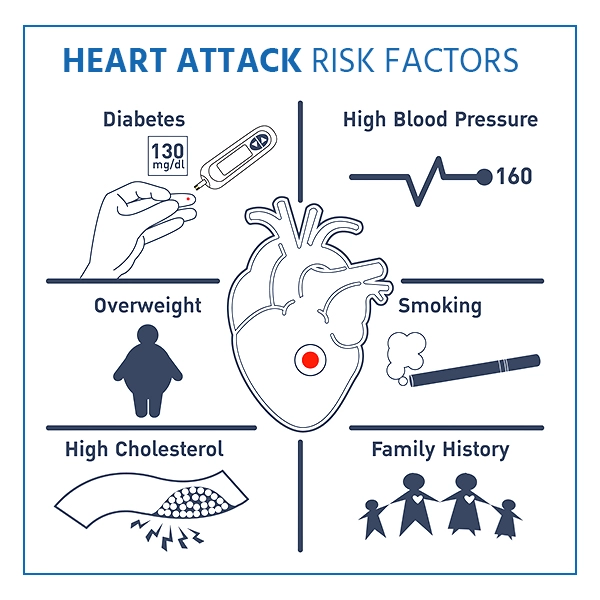
Surviving a heart attack isn’t the end of your story – it’s the start of a new chapter focusing on healing and reclaiming your health. Navigating recovery may bring some uncertainty, but understanding what actions promote healing and which choices could set you back empowers you to take charge of this journey.
The “Do” List for Enhanced Heart Health
- Medication Matters: Your doctor may prescribe medications to improve heart function, stabilize blood pressure, or lower cholesterol levels. Follow their instructions diligently and never discontinue medication without their specific guidance.
- Cardiac Rehab: Your Lifeline: Don’t underestimate the power of cardiac rehabilitation. It’s a personalized program providing monitored exercise, nutritional counseling, and emotional support – a holistic approach that optimizes your healing.
- Fuel Your Heart Right Prioritize whole foods like colorful fruits and vegetables, whole grains, and lean protein sources. Cut back dramatically on processed foods, unhealthy fats, and excessive salt; this is a heart-healthy diet your body will thank you for.
- Rest is Best (In the Beginning): Healing takes energy. Give your body the rest it needs. Ensure good sleep (7-8 hours) and don’t be afraid to take short breaks when you feel fatigued.
- Don’t Bottle It Up: Talk to your doctor or therapist about any anxiety, sadness, or concerns you have. Addressing the emotional side of recovery promotes greater overall well-being.

The “Don’t” List: Habits to Avoid
- Smoking is Never Your Friend: If you are a smoker, now is the time to get the support you need to quit. There’s no debate; this is one of the most powerful changes you can make for your heart’s future.
- Don’t Ignore Exercise (After Initial Rest): Once your doctor says it’s safe, regular exercise becomes essential. It may look different than before, but physical activity boosts heart health and your overall recovery.
- Stress Takes a Toll: Find ways to manage everyday stress. Yoga, meditation, enjoying hobbies, or simply spending time in nature can do wonders.
- Don’t Be a Lone Ranger: Surround yourself with supportive people – friends, family, and maybe even a cardiac support group. Connection and encouragement foster emotional resilience.

A Few More Important Notes
- Weight Matters: If weight loss is advised, make gradual, sustainable changes with your doctor’s input. A moderate weight reduction has major benefits.
- Know the Red Flags: Familiarize yourself with the potential signs of heart trouble and never hesitate to contact your doctor if anything worries you.
This is Your Journey, You’ve Got This
Recovery takes patience. Don’t get discouraged if some days feel harder than others. You’ll gain strength with time, and the healthy choices you make now are building a remarkable foundation for a long and fulfilling life. Remember, every small step, every change you incorporate, moves you closer to a revitalized, strong, and healthy heart. Keep moving forward!
Important Note: The information provided here is not meant to replace professional medical advice. Always consult your doctor for a recovery plan tailored to you, and address any questions or concerns you might have.